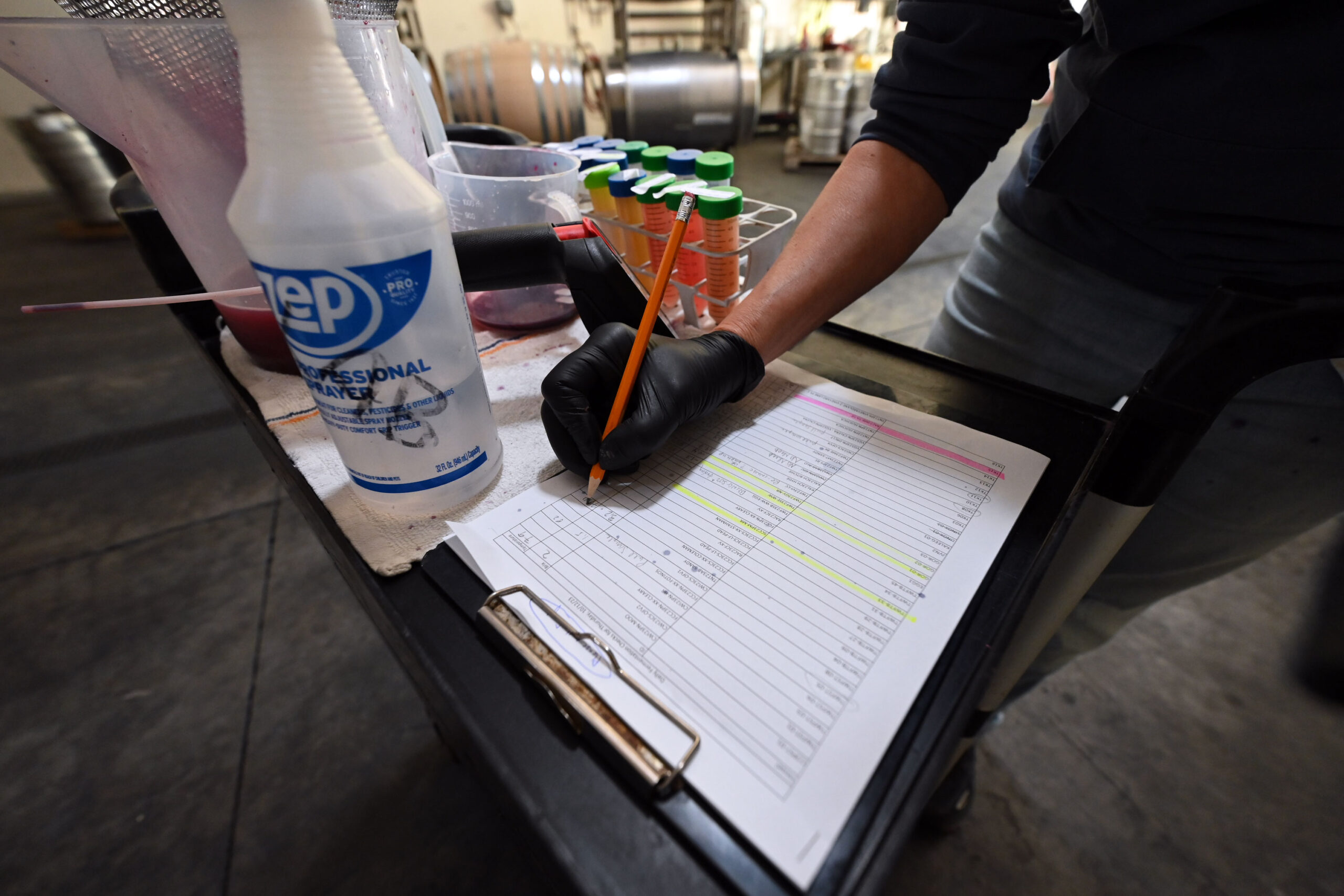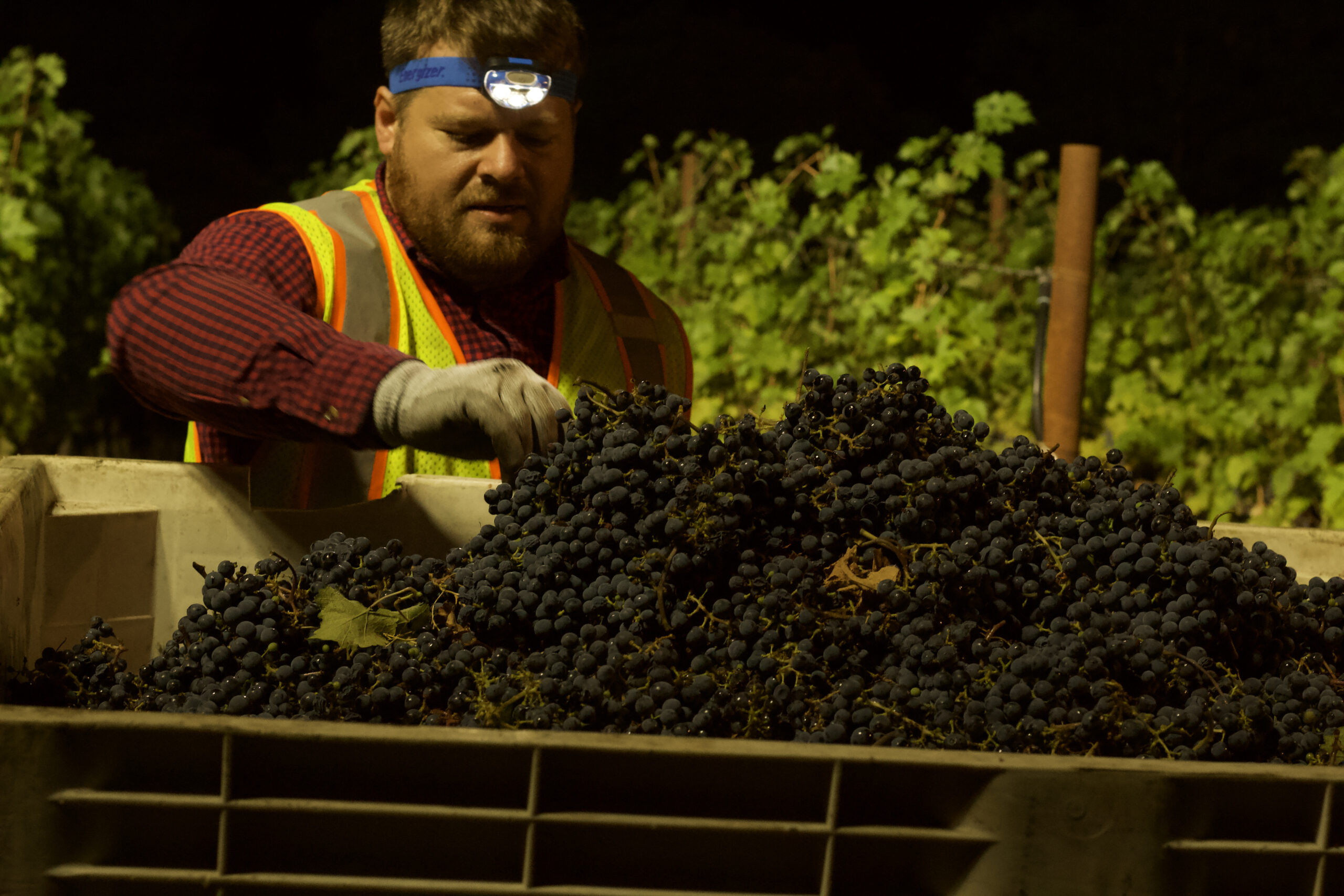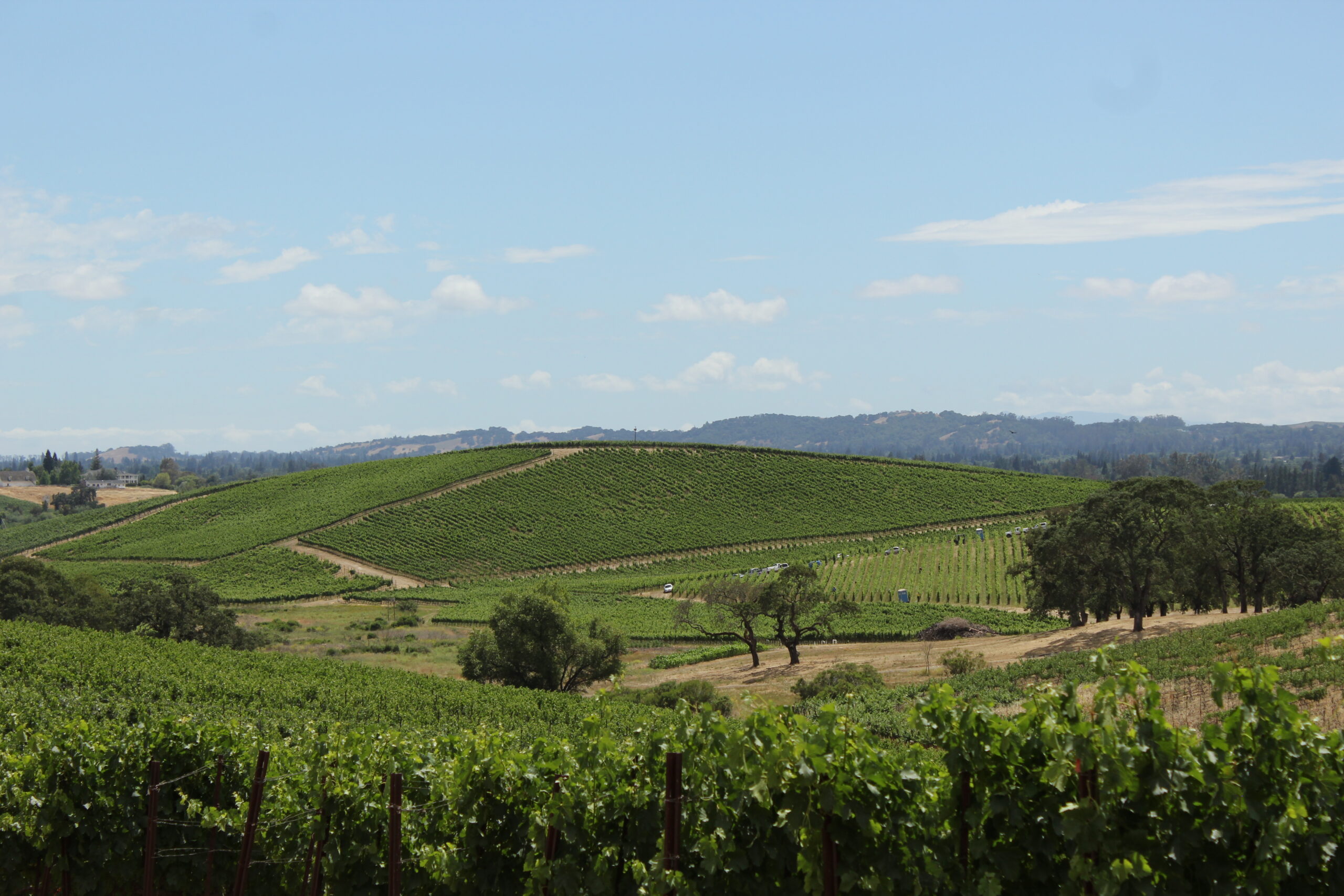Written by Michael Muckian, Contributing writer -When William Florescu, general director of Milwaukee’s Florentine Opera, raises a glass on the opening night of Gaetano Donizetti’s “The Elixir of Love,” he’ll toast the opera with the Florentine’s own wine. The Florentine Reserve, produced by The Wine Foundry in Napa, California, is a classic Bordeaux blend of Cabernet Sauvignon, Cabernet Franc, Merlot and Petite Verdot, says marketing and communications director Richard Clark.
“We knew that a love of great opera and a great wine would make the perfect pairing to end our 81st season,” Clark says.
It’s also a clever tie-in for the Florentine’s version of Donizetti’s comic opera, which has been migrated from the Basque Country in northern Spain, circa the 18th century, to 1930s California wine country.
“Since the opera’s premise is that a quack traveling doctor is trying to pass off a bottle of Bordeaux as a love potion, we knew wine country would be a perfect location for our version,” says Florescu, who’s directing the production. “It was one of those updates that would be plausible without changing the logic of the piece.”
In fact, the itinerant quack Dr. Dulcimara (bass Musa Ngqungwana) arrives just in time to find a love triangle in the making. Poor Nemorino (tenor Rolando Sanz), a simple man in love with wealthy landowner Adina (soprano Diana McVey), can barely attract her attention. When the self-important Sgt. Belcore (baritone Corey McKern) begins to court Adina, Nemorino turns to the medicine man for a love potion.
“The Elixir of Love,” a Florescu favorite that he ranks as one of Donizetti’s best operas, was relatively unknown to audiences after its initial performances in 1832. Famed tenor Luciano Pavarotti changed all that when he popularized the aria “Una furtive lagrima” (“A furtive tear”) in the ‘90s. It became one of the late Italian tenor’s signatures.
Donizetti wrote some 70 operas and a few sacred works, but most of them are no longer performed. His broader contribution to opera is having popularized the bel canto (“beautiful singing”) style of opera, along with Vincenzo Bellini and Gioachino Rossini.
“Elixir” contains several bel canto moments, Florescu says, most notably the five duets performed among the four major characters.
“‘Bel canto’ describes a style of singing, but also describes an opera era that was the golden age of singing,” Florescu says. “The style is generally thought of as having a beautiful lyric line and some fast notes. In bel canto, the orchestra played a subservient role, whereas later the orchestra became a sort of protagonist to the singers.”
The opera’s use of bel canto is punctuated by its comic characterizations. Those would become source material for some of Gilbert and Sullivan’s most famous parodies, Florescu says. The “patter songs” familiar to fans of”The Mikado” and “The Pirates of Penzance” first appeared in bel canto operas.
He also thinks the opera has unique implications in choosing to empower its heroine financially and romantically. “What’s fascinating about this piece, which was adapted from a French libretto, is that you have a single woman in a position of independence and power with a young man mooning over her,” Florescu says.
Donizetti’s strength as a composer adds to the opera’s appeal even beyond its comic leanings, Florescu adds. He was a craftsman who composed operas on commission to earn a living, but he was also an artist whose works foreshadowed operatic compositions yet to come.
The composer’s strength was his naturalistic compositional style, Florescu explains. While Bellini and Rossini usually relied on musical “hooks,” Donizetti was able to adapt his style to suit the material for which he was composing, whether it was a comedy like “Elixir” or a tragedy like “Lucia.” However, the composer did have his weaknesses.
“He wrote at a quick pace and pumped out at least two operas a year,” Florescu says. “The sheer prodigiousness of his output meant that some of his stuff became workmanlike to the point where it didn’t contain any memorability.”
Fortunately, “The Elixir of Love” doesn’t fit into that category, standing as one of the composer’s best efforts. Florescu expects audience members will feel the same way.
“I think people will love hearing the voices working together, especially in the five duets,” Florescu says. “They’re just fantastic pieces that give each voice a chance to shine, but they also do a great job moving the actions forward.”
ON STAGE
The Florentine Opera’s production of Donizetti’s “The Elixir of Love” will be performed in Italian on May 8 and May 10 at the Marcus Center, 929 N. Water St., Milwaukee. Tickets are $27-$121 and can be ordered at 414-273-7121 or florentineopera.org.
IN THE GLASS
To taste The Florentine Reserve, join opera fans at a Florentine fundraiser to be held at the Lake Country home of Dr. Karen Madsen and Dr. Peter Drescher. The event will take place on May 2 at 6:30 p.m. and also feature duets from “The Elixir of Love” performed by the Florentine Studio Artists.
Tickets are $50 and include samples of the Napa Valley red and food catered by Zilli’s. For details or to reservations, call 414-291-5700, ext. 212, before April 27.
Read the article on the Wisconsin Gazette


